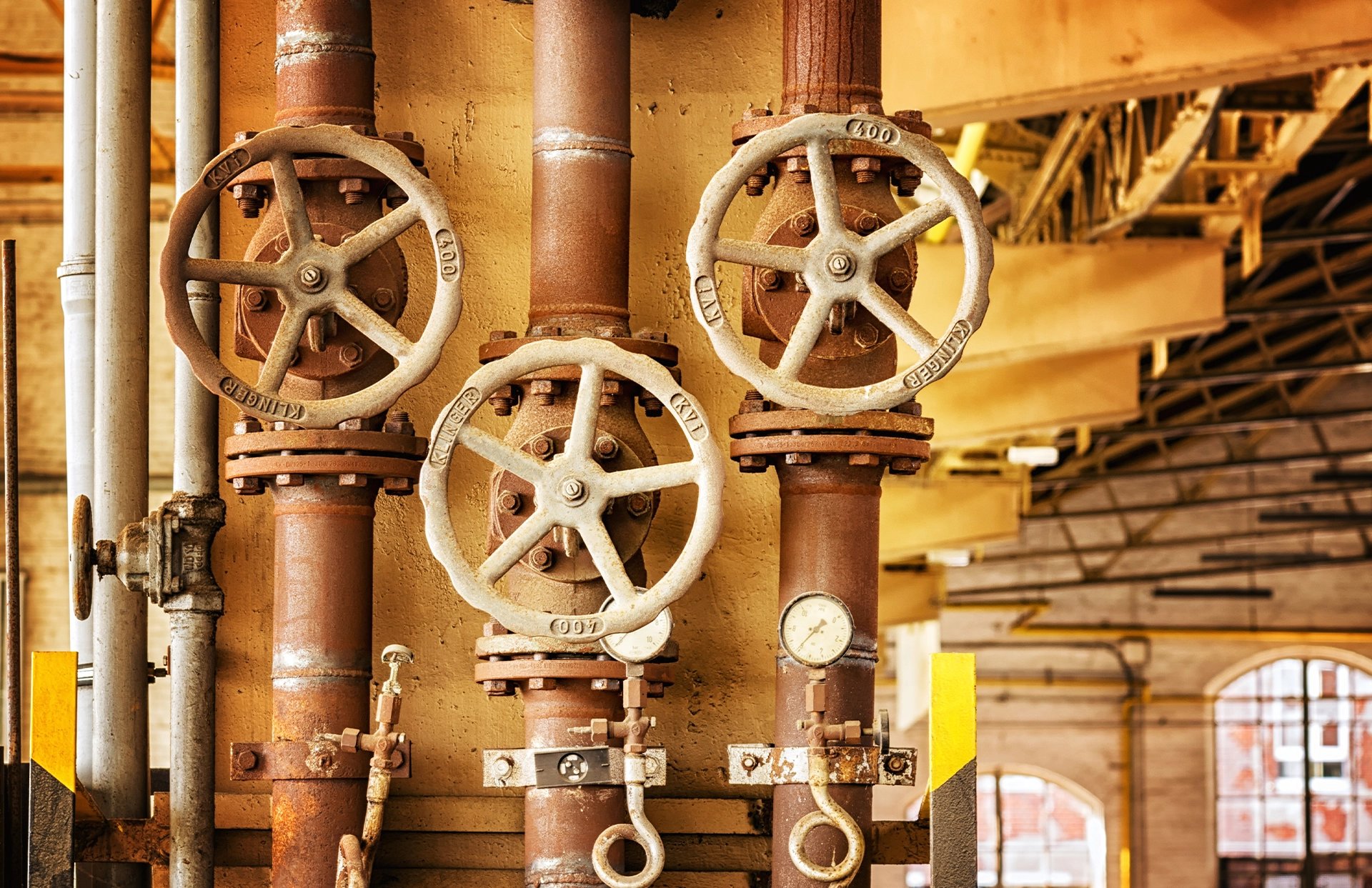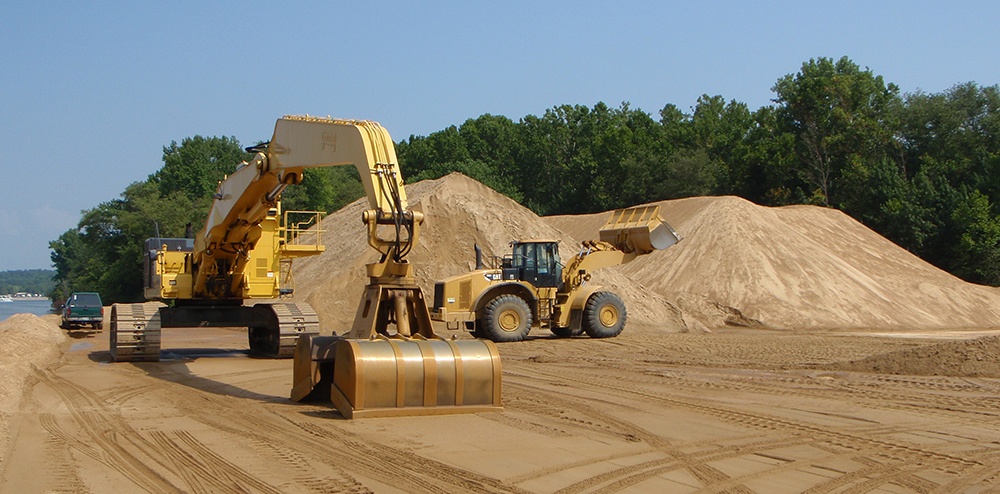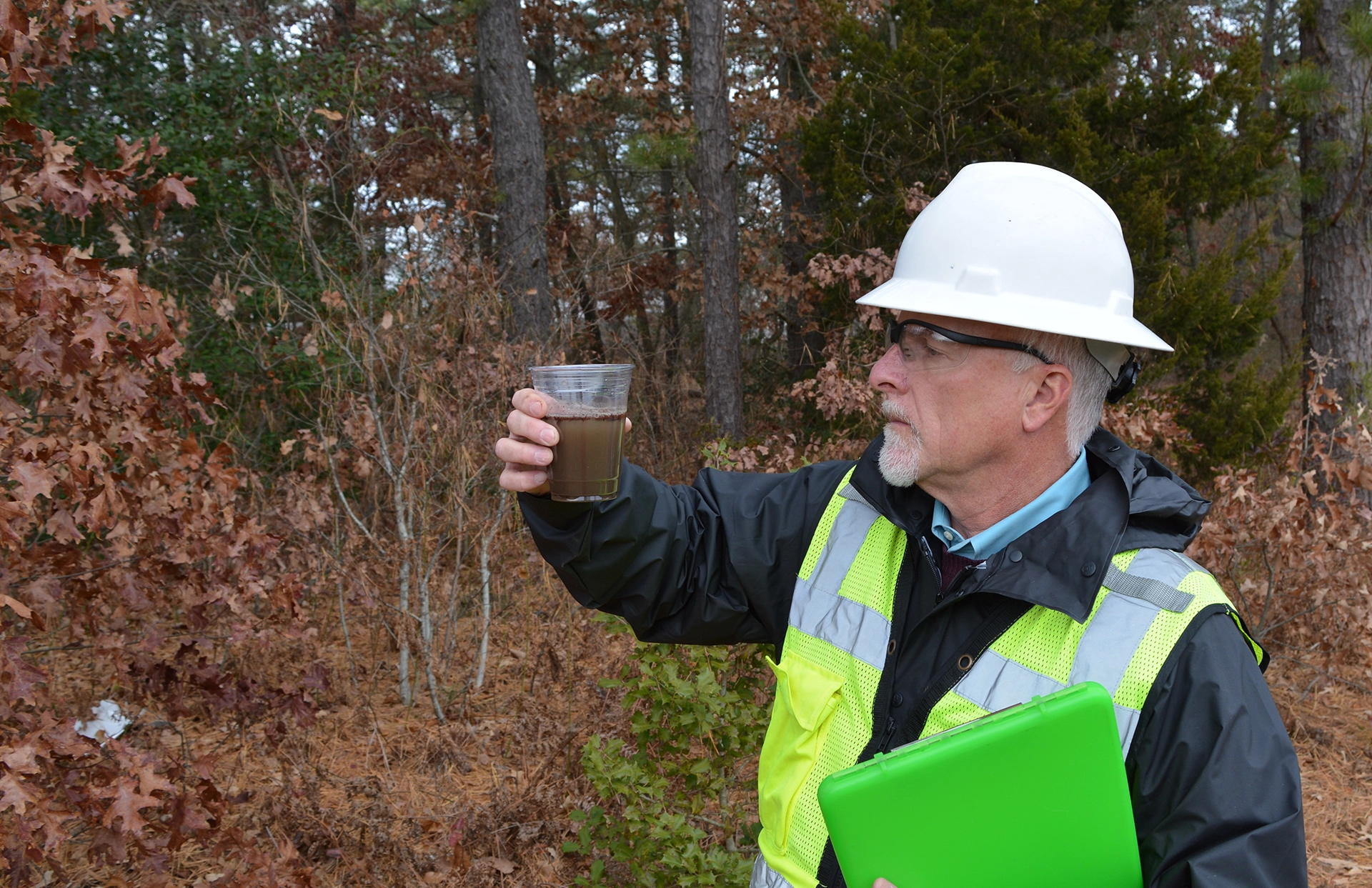We explain New Jersey stormwater permits in a way that actually makes sense.
Just about every industrial facility in New Jersey needs some type of stormwater permit. Additionally, some facilities need permits for process wastewater. But the biggest challenge isn't getting the permit you need, it's navigating the labyrinth of regulations that will apply to your operation.
Even the most basic NJPDES permits in New Jersey can be confusing and cumbersome to business owners and facility managers. All too often we're called in when folks throw in the towel because they've either received garbled information from a regulator, bad advice from a bad consultant, or even worse, they've tried to go it on their own and attempted to check out the regulations online.
Some of our best clients today turned to us when they didn't understand their permit's regulations and they just needed help. However, just because the rules can be tricky to navigate does not mean you can feign ignorance. If you don't understand basic permit requirements, it's very easy to find yourself in hot water, and you could be looking at a violation or penalty before you know it.

New Jersey stormwater permit requirements explained.
I'm going to try to break as much of this down as I can, but bear in mind, there are several different types of New Jersey stormwater permits, all of which are called NJPDES permits. Each has its own specific rules and regulations, but here we'll discuss some universal basics we see in each permit.
What are NJPDES Permits?
These are stormwater discharge permits based on NPDES permits created under the Federal Clean Water Act. The NJDEP runs the program, hence it's called the New Jersey Pollutant Discharge Elimination System. Virtually every state has one of these permits, and they're usually called something similar.
Stormwater permits are requirements for most industrial facilities in New Jersey.
Anyone who discharges any type of "polluted or contaminated water" to a "water of the State of New Jersey" needs a permit at their industrial operation. Having said that, there are certain types of industrial operations that may not be covered, meaning not ALL industrial facilities need a NJPDES permit... easy, right?
This means if water (process wastewater or stormwater) leaves your site into a stream, lake, river, bay, wetland area, catch basin, storm drain, onto a roadway, etc., you need to have a permit that has restrictions (limits or benchmarks) on what the quality of your runoff can be. The NJDEP also regulates groundwater discharges, so a "water of the State of New Jersey" doesn't just mean surface waters, it also means the aquifers under our feet.
Bear in mind that virtually every type of discharge is going to need to be monitored, sampled, and tested. That means testing your stormwater or process water discharge is usually done either annually, bi-annually, quarterly, or even monthly.
Also, most New Jersey stormwater permits are going to require some form of annual stormwater training, and possibly annual & monthly inspections of your facility, your discharge locations, and other areas of importance with regard to your stormwater permit.
NJPDES permits cover both stormwater and process water.
The two main types of discharges are stormwater discharges (rainfall that lands on your site, becomes contaminated by running over materials, dirt, sediment, spills, stockpiles, etc., and runs off your site) and process wastewater discharges (water used in the processes at your site, such as cleaning, mixing, rinsing, sewage, industrial effluent, etc.).
Even if your operation here in New Jersey is entirely indoors, very often you'll still need some type of NJPDES permit. Same goes if you run a squeaky clean operation - if your industry (applicable by NAICS/SIC code) is covered, and/or the NJDEP says "get a permit", you need a permit!
Permit regulations for stormwater and process wastewater discharges are usually as different as night and day. Stormwater discharges are usually covered by one of several types of general permits, which are supposed to be easier, cheaper, less involved, and have fewer requirements (but they're still not simple or easy as far as I'm concerned). Process wastewater discharges are usually more complicated and based on an individual facility's particular situation, and are usually therefore called. We cover this more in depth in our article "Do I need an Individual NJPDES Industrial Permit?"

New Jersey stormwater permits usually require a SWPPP & DCP.
Typical permit requirements for stormwater discharges include the development of a SWPPP (Stormwater Pollution Prevention Plan) as well as a written DCP (Drainage Control Plan), the implementation of stormwater BMPs (check out our article on what are the best stormwater BMPs?). These two documents are designed to help you manage your stormwater and easily stay in compliance with the rules & regulations at your industrial operation in New Jersey.
When we prepare SWPPP & DCPs for our clients, we do so in a manner that's the easiest to use and understand from our client's perspective. The end goal is to make things easier for you, not the regulators!
Examples of NJPDES stormwater permit requirements.
Here are some examples of what facility operators would need to do:
- An Industrial Operation Completely Indoors - Let's say you make a widget, and your entire operation is indoors. You might have stormwater runoff from your property drain across parking lots and loading docks to a roadway, but there's nothing else outside. This discharge type is a "discharge to surface water", even though it gets there indirectly. Although the runoff most likely isn't that contaminated, it does rain on the facility's parking area, dumpsters, and possibly some temporary outside storage, where it picks up the potential for pollution. This facility will need a general stormwater permit, a SWPPP, a DCP, they'll have to conduct inspections, training, complete certifications, and pay an annual fee. As of writing this article, that means the 5G2 General Stormwater Permit, which we cover in detail in our article The 5G2 Basic Industrial Stormwater Permit in New Jersey EXPLAINED
- A wood recycling facility near a creek - In New Jersey, wood recyclers have their own industry-specific NJPDES stormwater permit, like a lot of other industries. They'll need that permit (unless it's a very unique operation that needs an individual permit), a SWPPP, a DCP, inspections, training, certifications, an annual fee, and they'll have to conduct quarterly stormwater monitoring. Since they discharge to the nearby creek, they are also a "discharge to surface water". We discuss this a bit more on our page New Jersey Wood Recyclers (R7) NJPDES Stormwater Permit.
- An industrial facility with on-site retention basins - The facility discharges stormwater to the ground, otherwise known as a "discharge to groundwater" facility. If this operation has an industry-specific permit, they'll need that, otherwise, they'll use an Individual Permit. They'll need a SWPPP, DCP, inspections, training, certifications, pay annual fees, and possibly have stormwater monitoring requirements on the water entering the retention basin.
- A facility that discharges process wastewater - Immediately they'll need an Individual Permit, whether they discharge to either surface water or groundwater. The requirements would be specific to the facility and its discharges, but likely include operational restrictions, intense discharge monitoring, and the need to comply with strict discharge limits. Not an easy or cheap thing to do!
Additional NJPDES Stormwater Permit Resources
Here are some additional information we find clients find helpful when learning about NJ stormwater permits.
So, in a very simple sense, those are some of the basic NJPDES stormwater (and process water) permit requirements in New Jersey. Of course, it can get a lot more complicated than this brief review makes it out to be, but this provides a general idea of how these permits work.
If you're still unsure about what you need or have questions about your operation, your best advice is to get expert help. Honestly, I'd suggest you contact an expert before you call the NJDEP, because their advice can be confusing, and if you're not in compliance, you run the risk of alerting them to your operation. Either way, not helpful!
If you find yourself needing a hand with NJPDES permitting here in New Jersey, or any other area of environmental regulatory requirements, reach out. Even if we can't help, we’ll do our best to give you some guidance on how to get what you need done. Feel free to contact us at info@rmagreen.com, click here to contact us, or give us a call anytime at 888-RMA-0230 to learn how we can help with NJPDES permits here in New Jersey.




